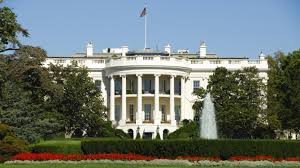 Executives from Dell, Ford, Lockheed Martin and several other companies visited the White House to meet with President Trump. At the heart of this meeting was the topic of American Manufacturing, and more specifically, how President Trump intends to create new jobs and strengthen this vital segment of the nation’s infrastructure.
Executives from Dell, Ford, Lockheed Martin and several other companies visited the White House to meet with President Trump. At the heart of this meeting was the topic of American Manufacturing, and more specifically, how President Trump intends to create new jobs and strengthen this vital segment of the nation’s infrastructure.
Earlier this month, Donald Trump became the 45 president after taking the Oath of Office and being sworn in. Since then, he’s been actively engaged with business leaders throughout the country in an effort to revitalize the nation’s economy.
When the corporate executives met with President Trump, they discussed several topics, the most significant being the current and future state of the American manufacturing industry. Of course, the relationship between Trump and some of these executives hasn’t always been smooth. During the election campaign, Trump slammed Ford for planning to expand its manufacturing facilities in Mexico instead of the U.S. Ford ultimately ditched these plans, with the automaker’s new focus on creating additional manufacturing facilities here in the U.S.
When speaking about the meeting with President Trump, Ford CEO Mark Fields said it twas a positive meeting, both for the country and the manufacturing industry in general.
“Walking out of the meeting today, I know I come out with a lot of confidence that the president is very, very serious on making sure that the United States economy is going to be strong, and they have policies—tax, regulatory or trade—to drive that. I think that encourages all of us as CEOs as we make decisions going forward,” said Mark Fields, CEO of Ford. “It was a very, very positive meeting, and I think a very positive meeting for the United States of America and manufacturing in general.”
So, how does President Trump intend to bring manufacturing jobs back to the U.S.? For starters, he’s proposed new tariffs on products important by the U.S. from other countries. If a company wants to manufacture products overseas and sell those products in the U.S., it would have to pay a hefty tariff. The general idea is that these tariffs would discourage companies from sending jobs overseas, as it would be more cost-effective to manufacture products here in the U.S. to avoid the tariff.
The White House administration has also said it will be open to negotiations surrounding the North American Free Trade Agreement (NAFTA), which could potentially further strengthen the country’s manufacturing industry.
